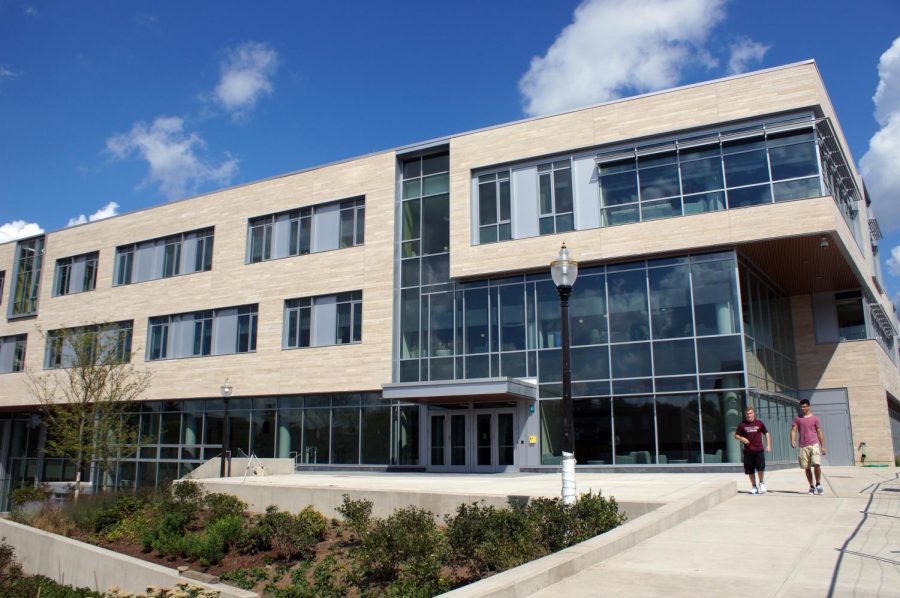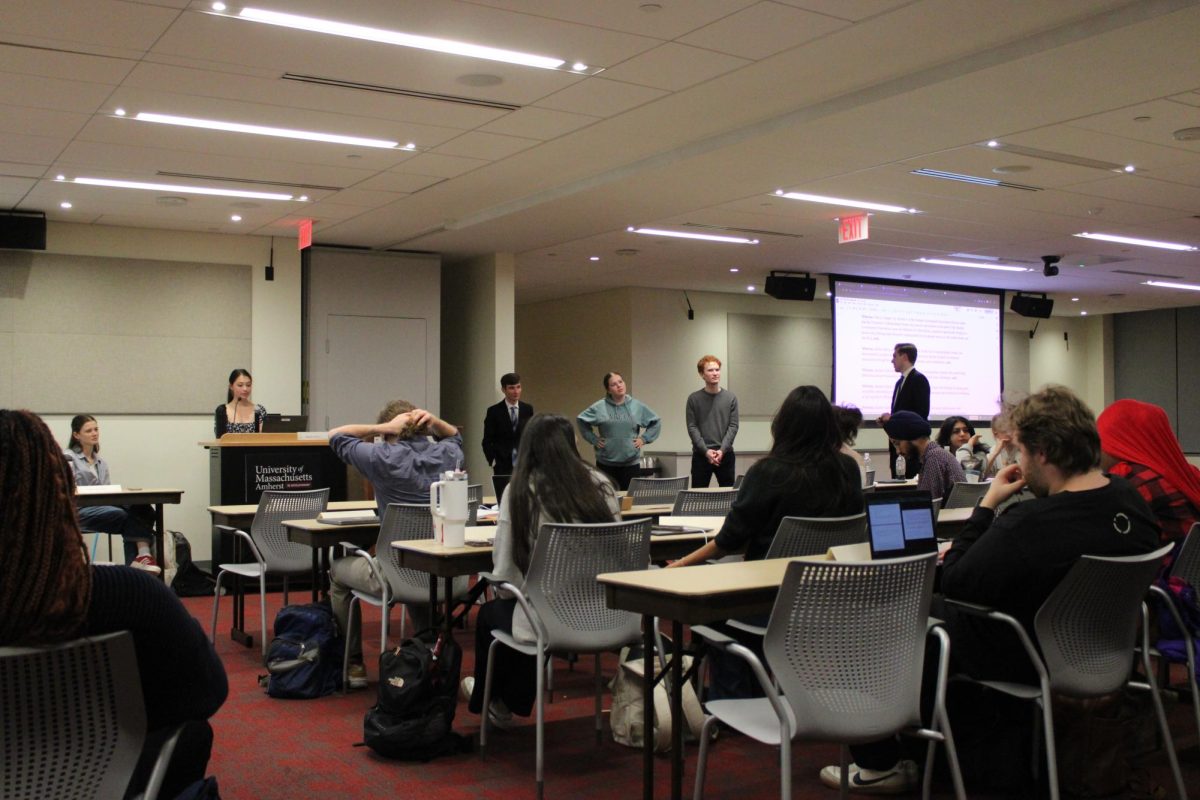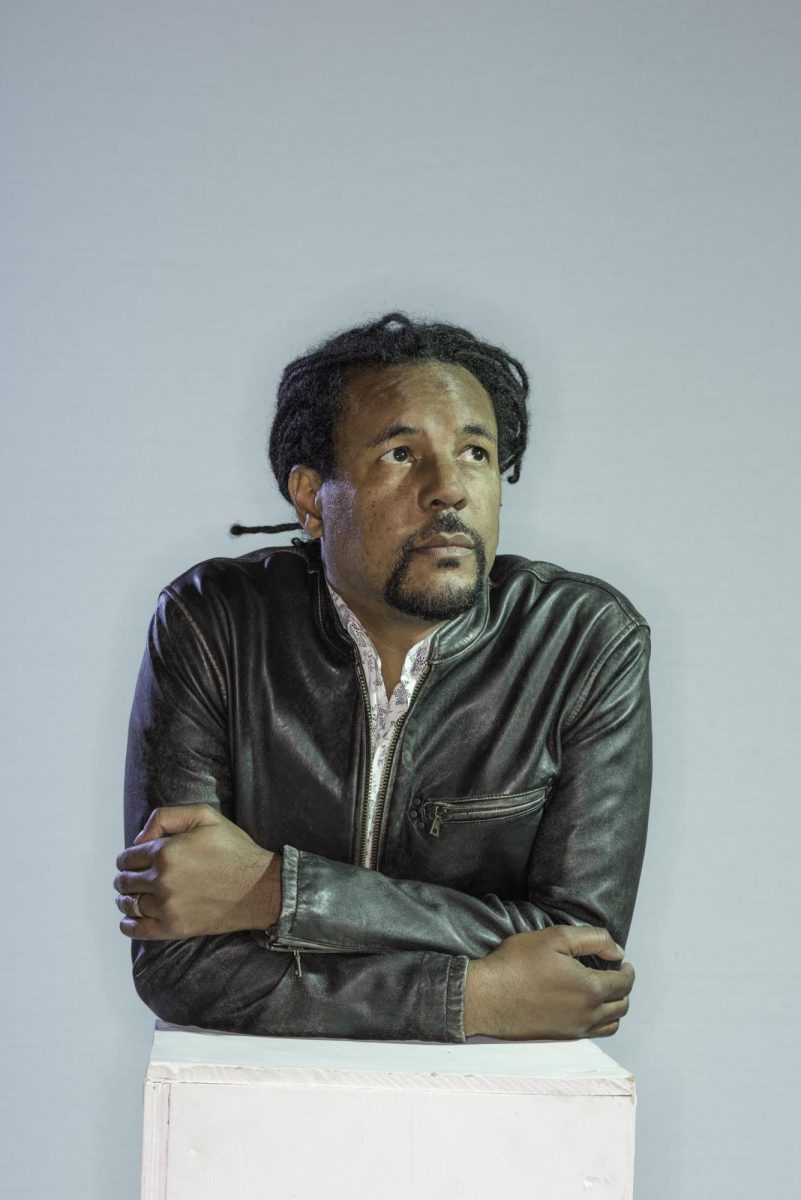On Feb. 24, the Boltwood Project, a service learning Registered Student Organization out of Civic Engagement and Service Learning, hosted a workshop called “Life on and Slightly to the Right of the Autism Spectrum: An Inside View on Leading a Fulfilling and Productive Life.”
The speaker of the workshop was University of Massachusetts alumnus Stephen Shore, an assistant professor at Adelphi University’s School of Education. Shore spoke about his experience in the field of special education as well as his experience as an autistic individual.
“There isn’t anything bad about being autistic. There’s nothing shameful about being autistic.” He said that autistic people are “taking back the word.”
Emphasizing heavily the strengths of autistic individuals, Shore showed the audience a glimpse into how the mind of an autistic individual works with two pictures of a carousel, and asking for the differences in the two.
This exercise was meant to demonstrate how detail orientated people with autism are. The way they think can often be extremely beneficial in certain fields of work where focusing on details is crucial; from computer programmers in Silicon Valley to any type of engineers. He joked, saying “Being an engineer should be a diagnostic criterion of autism.”
Shore stressed the importance of recognizing autism with all its strengths and not as a disability. He shared the three A’s of autism: awareness, acceptance and appreciation, all of which will hopefully lead to a more accepting society that is able to recognize the strengths of those with autism.
Using himself as an example, Shore told his own story of being autistic. At 18 months old, he experienced loss of speech, environmental withdrawal and self-stimulation. Shore describes “the autism bomb” that dropped onto his parents when he was diagnosed and the recommendation for institutionalization by his doctors.
Through his parents advocating for him, Shore was put into school and into what is known today as an Intensive Home-Based Early Intervention Program. He said, “This was a program that emphasized music, movement, sensory-integration, narration and invitation.” At age four, his speech returned.
At the same age, Shore was found taking apart a watch by his parents. As he grew older he moved from watches to bikes. Throughout middle school and high school, Shore found an interest in learning instruments which led to him studying music education in college. He accredits his “autistic head” for his ability to learn and play 15 instruments.
In college, Shore utilized his ability to take apart bikes and started his own side job of fixing bikes. He plastered flyers over the campus and was able to earn money fixing the bikes of his fellow students. Along with fixing bikes, Shore was studying for a double major in accounting and music education.
He again stressed the importance of interests and the different ways of thinking for development in autistic individuals.
The area he wasn’t that interested in at the time was dating. He shared a story of his struggles with verbal communication with women and his later triumph in his marriage with his wife of almost 28 years.
He posed two questions in his closing statements, asking “Is autism a series of deficits, disorder and disability or a set of abilities? How will you transform a weakness or challenge into a strength?”
Following Shore’s presentation was a question and answer portion, then a half hour break was given to everyone. After the break, everyone was invited back to participate in an art project led by Joseph Krupczynski, the director of CESL and part of the Building Bridges Project that works to bringing together communities. The smaller art projects done by the participants will be incorporated into a larger one.
Stephanie Gaglini, a communication disorders major who works with CESL, helped organize this seminar and described the importance of this seminar in relation to the objectives of CESL, which include supporting individuals, educating not only their volunteers but the community, and advocating for inclusion of all.
“We want to educate everybody about disability or ability in different views. So, I think that’s what was important about this [seminar],” Gaglini said. “Stephen has different views. Identifying with autism, he shares a different viewpoint that not many people have. So, it was important for us to hear from people with the condition what we’re talking about.”
Dorcas Mwathi, a senior public health major, has experience in working with autistic adults based in group homes aged 60 and up.
“This is a really great opportunity to kind of reimagine what would be different if they were born today and how their life would turn out to be different and not confined or restricted in a home,” Mwathi said.
Bonnie Chen can be reached at [email protected].




















R • Feb 26, 2018 at 8:16 pm
“Being an engineer should be a diagnostic criterion of autism.” actually judging from my family, as well as the engineers i’ve met because of them, this isn’t much of a joke…
without a little more contextualization in this article (i didn’t see the talk, unfortunately so i can’t speak to it) we are in danger of “rain man syndrome”, that is, assuming people with ASD (autism spectrum disorders) are all brilliant hyper-intellectual geniuses. there is a high comorbidity of ASD with other psychiatric issues like mood disorders; some people on the spectrum have so much trouble dealing with other people that social isolation leads to lack of opportunity or ability to actually develop and share one’s gifts. ASD is also underdiagnosed in poorer and marginalized populations.
then of course there is the fact that the “spectrum” runs from people with asperger’s like myself through people with high-functioning autism like this speaker, on to low-functioning autism which can be really a rough scene – people may need daily help for their entire lives. unfortunately they aren’t going to be portrayed as charming “awkward nerds” on tv. like all too many people with severe disabilities, their lives and struggles will unfold hidden away from public recognition and all too often from much needed support.
“Is autism a series of deficits, disorder and disability or a set of abilities?” well, it really depends. it’s not an exclusive “or”.